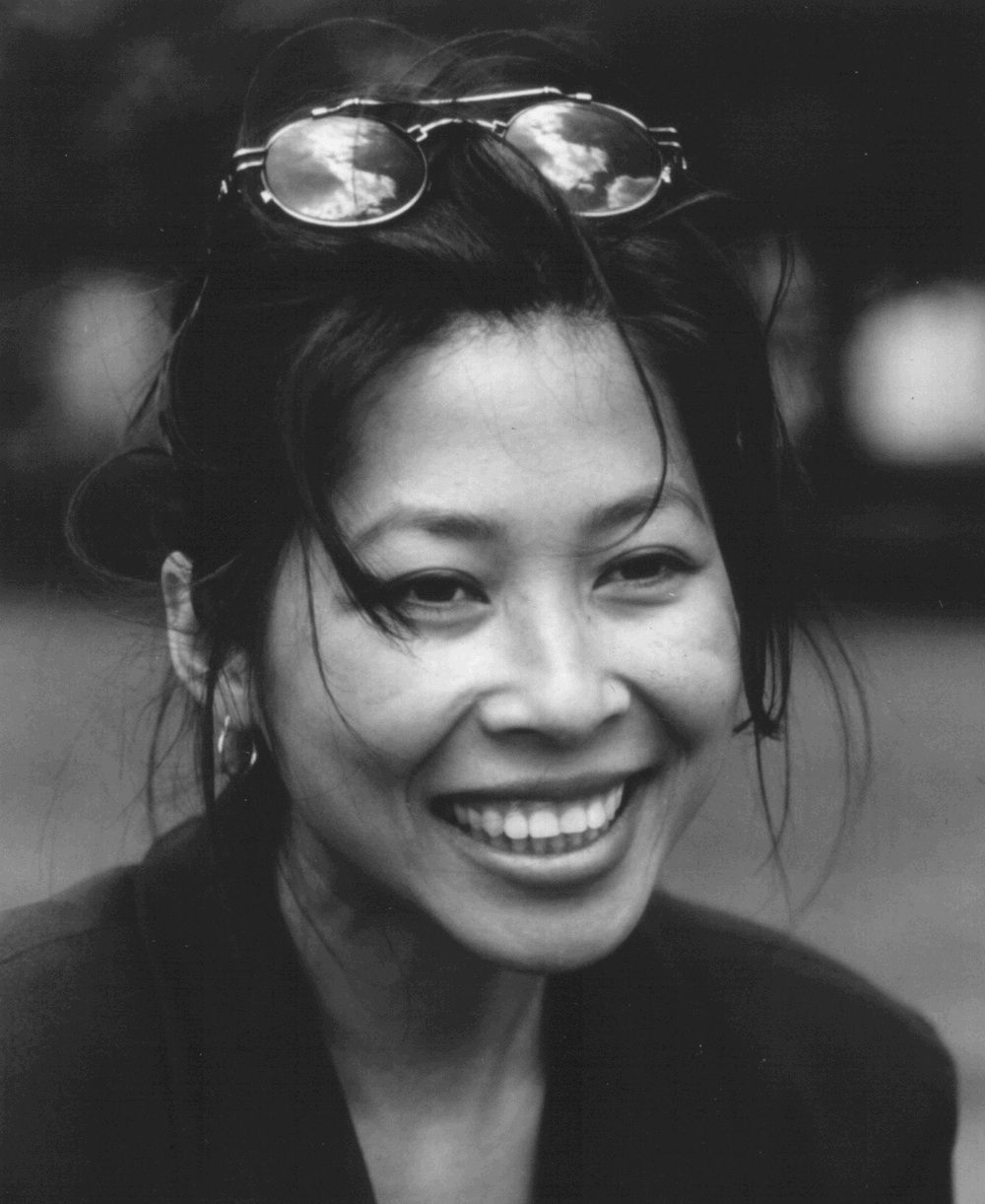Loung Ung Writes Home

Fear follows us. It followed Loung Ung from the death-filled Khmer Rouge reign in Cambodia to a hopeful new life in America. In her memoir Lulu In The Sky (Harper Perennial), Loung evocatively shares her journey from bitter, angry young girl lost in the child soldier camps of the Khmer, to rebellious but dreamy American adolescent, longing for the careless freedom of her friends.
Loung works hard to find happiness and keep it, daring to love, returning to her Cambodian village, and becoming a vigorous and tireless activist. Though fear, violence and the dark shadows of her soldier past threaten Ung constantly, her story is a poem of survival shot through with vibrant images of Cambodian color: green jungle, sparkling rivers and blazing skies. It is also a tale of cultural adjustment, an ode to America’s passionate optimism, Vermont quiet, and the idea that love can cure all. We spoke with Loung about the wisdom of the old, why she never wanted to don pretty dresses, the lie of constant sunshine, her first disastrous fourth of July, and choosing happiness over and over again.
ROYAL YOUNG: I wanted to talk to you about this idea of old age and wisdom as something that’s really important. In America, I think we sometimes lose that.
LOUNG UNG: Definitely when I approach a more mature age, I am not going to live in America. There’s not that constant connection here to family. Visiting my grandmother, when she was 94, which is a very long life in Cambodia, I saw how important it was that she was in a community with my sisters, brothers and all little cousins and little grandchildren were so involved in her life. I liked that experience so much more than visiting my sister-in-law’s grandparents in a nursing home. That always reminded me of being a fish in a tank. It’s about looking at a community through your window versus being part of a community that’s alive, that is youthful and old and hungry and smelly and loud, where everything is vibrant and colorful. My grandmother could tell stories about how and her and my grandfather used to have a good time, even when she only had four teeth left.
YOUNG: I feel like in America, not only do we shut older people away in homes and kind of distance ourselves from them, but there’s also a fear of them.
UNG: And I think the fear really comes out of separating them. My little nieces were very comfortable massaging my grandmother’s hands, I would do the same and I know she enjoyed it.
YOUNG: When you think about it, as any person what would make you happier: to be getting a kind of therapy from people you love or to be constantly interacting with medical professionals?
UNG: Yes. When it comes to myself, I am going to choose a few less years, but living in a loud, vibrant community.
YOUNG: In your book, there’s a struggle between a difficult past and a happy future. How do we understand that our past doesn’t have to rule us?
UNG: I think living in the West, we live in a culture where everybody strives for perfection, whether it’s in body, health, spirit, skin, hair, nails. Perfect happiness would be a constant state of bliss, which doesn’t exist. Growing up and going through the loss I went through, I never had a moment where I believed a constant state of bliss was possible. Instead, I tried to create many moments. But, I didn’t know how to get there. Because of what I went through, I have a natural tendency towards darkness. Though it may be in my DNA as well. [laughs] When my sister wanted to go put on pretty dresses, I wanted to catch flies and pull off their wings. For me, choosing happiness has to be something that’s conscious, a choice, something I act on.
YOUNG: You have to search for it.
UNG: Yes. And I think this is something really difficult in a society where there’s this falsehood that there’s sunshine everywhere and all you have to do is hook yourself up to it. We’re such an optimistic culture, but sometimes we have to work a lot harder to find it.
YOUNG: Another interesting idea I think is pretty American is that if you have to work hard for it, it’s not real happiness. That real happiness is this effortless, easy, breezy thing and I think that’s so dangerous. Also, this fad for enlightenment, where you go on a weekend retreat and you’re like: I’m enlightened! That doesn’t work either.
UNG: Yes, life isn’t like that. You can be enlightened in moments and then lose it. I totally agree with you about this false effortlessness. And that can also be for body or health. I have to work out in order to stay fit. I don’t love it, but I do it because I need to. Then there are girls who are just like, “Oh, I never work out. I’m just naturally like this.” People look at them in awe, but they’re either lying, or even if it’s true, they’re an exception. Actually working out doesn’t seem to have as much value. I love the fact that I earned this.
YOUNG: When you first came to America, did you feel that way about the mental healing process you had to go through?
UNG: When I first came to the US, I was 10 years old. I didn’t speak English. I arrived on June 20, so my first big holiday in the US was the Fourth of July, which put me into a traumatic PTSD situation. At the fair ground, everyone was shouting and watching fireworks explode and I was back in the war. I was thinking war had come for me in America. How was this possible? There were moments when my mind just fractured and I was neither here nor there. It was a loss of control that was very scary.
YOUNG: When you choose happiness, what are the things that help you to keep making that choice?
UNG: Choosing happiness is a scary thing. Choosing love is a scary thing. When I was in the war, not only did I not have a voice, but I had to make myself not be heard, not be seen, become dumb, mute, blind, invisible, just so I could survive. When you fall in love, you become alive, all of a sudden you are singing. For me, there was a fear that the person I love would one day leave me, whether by their own choice or that they would die. How was I going to survive that? Choosing love and happiness is to know life goes on. I had to believe that.
LULU IN THE SKY IS OUT TODAY.






